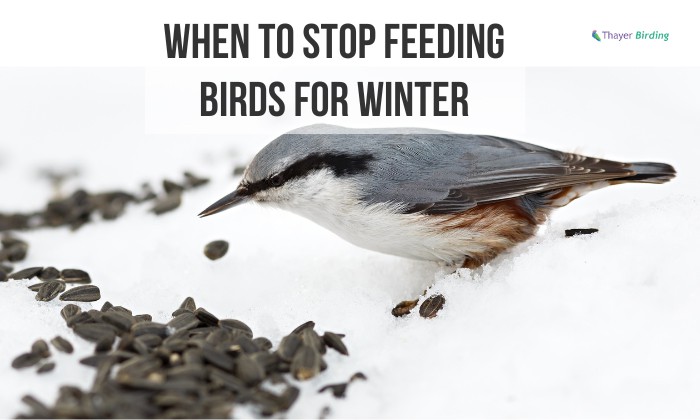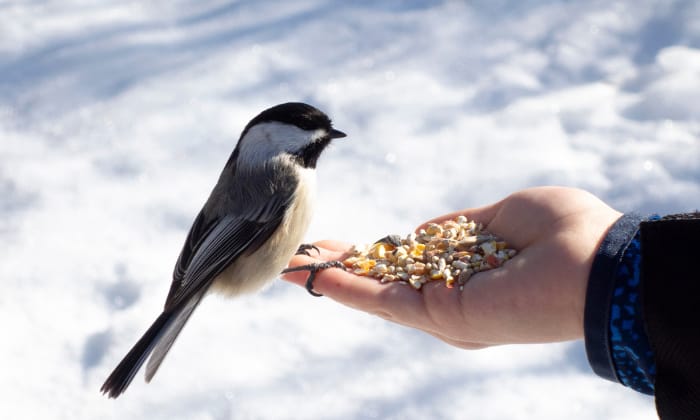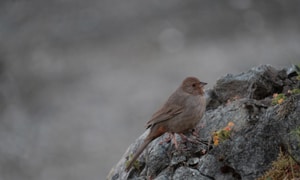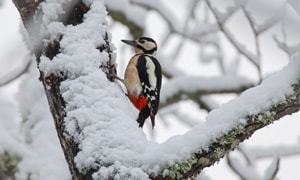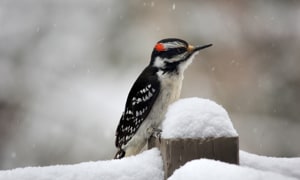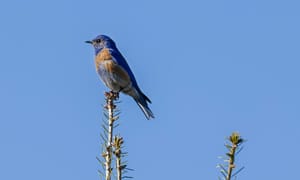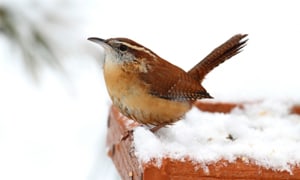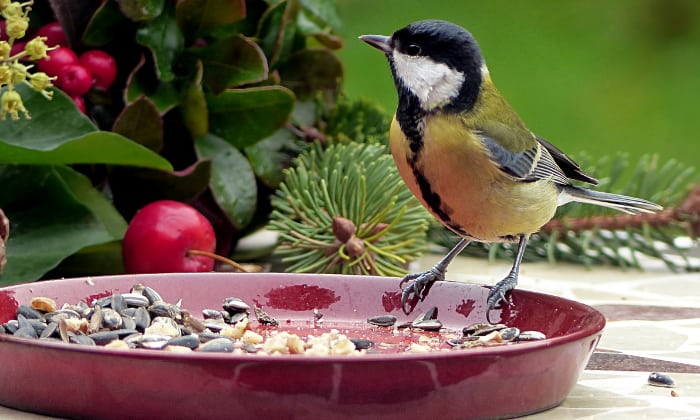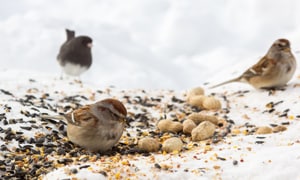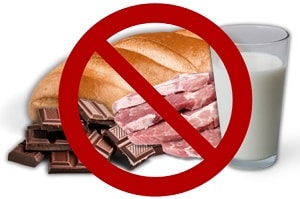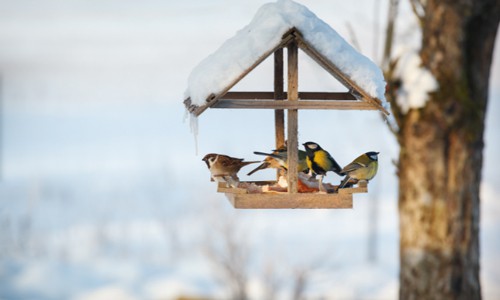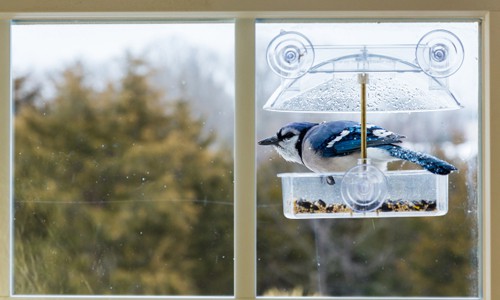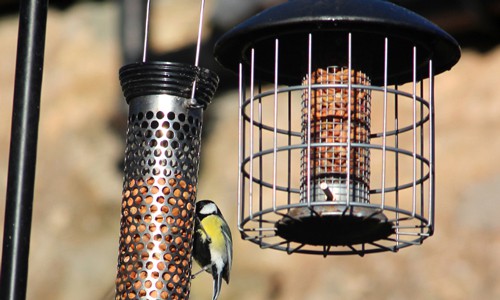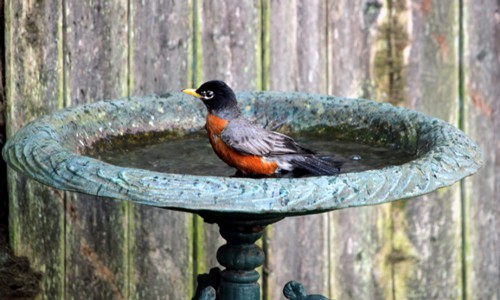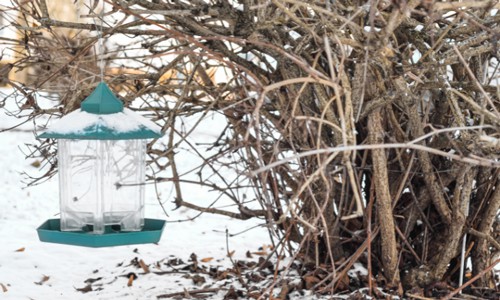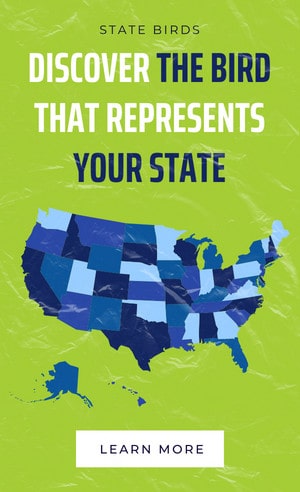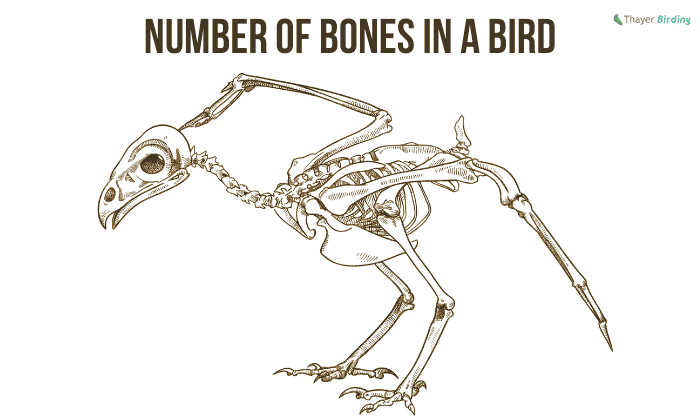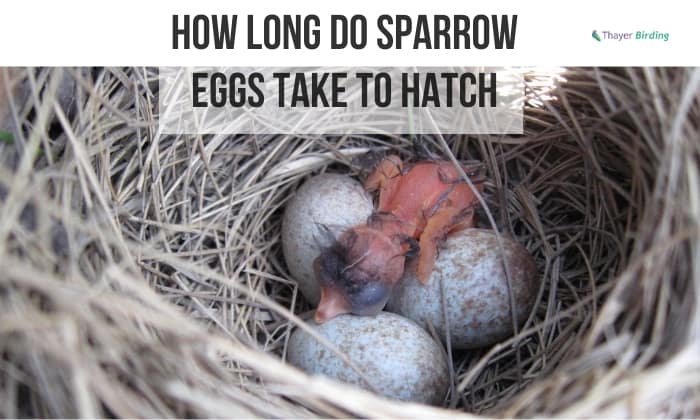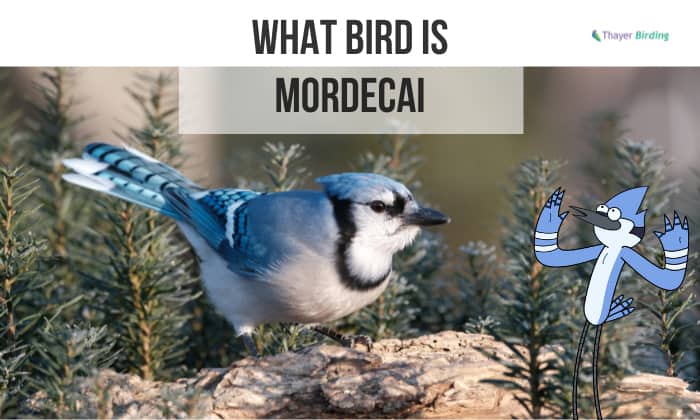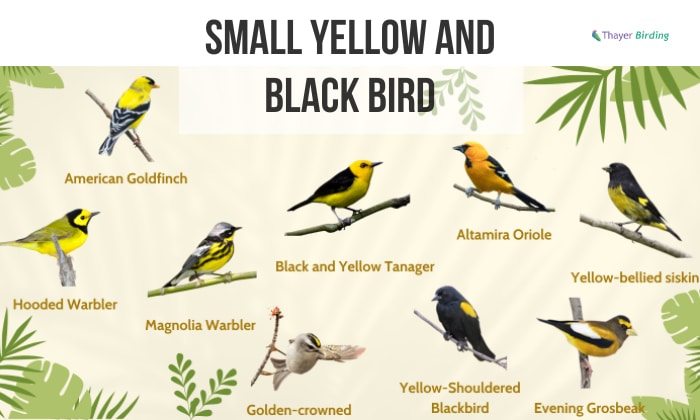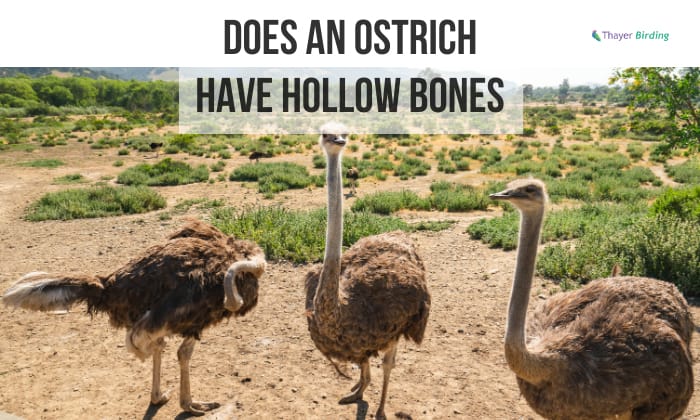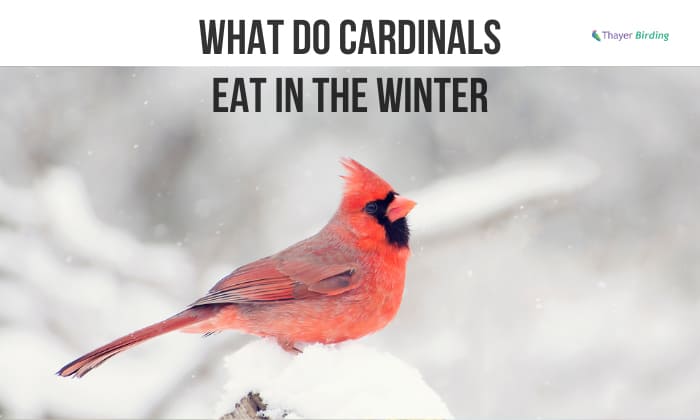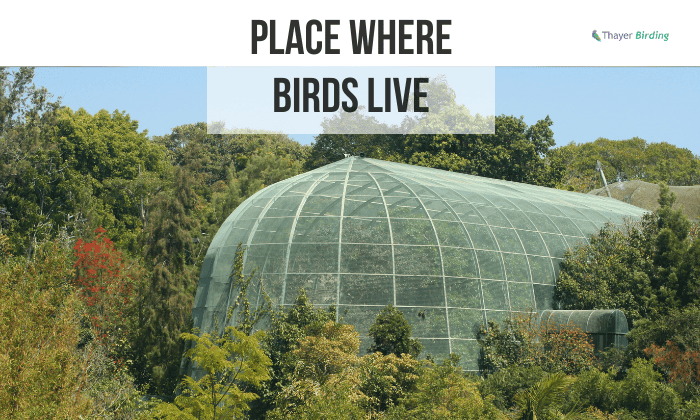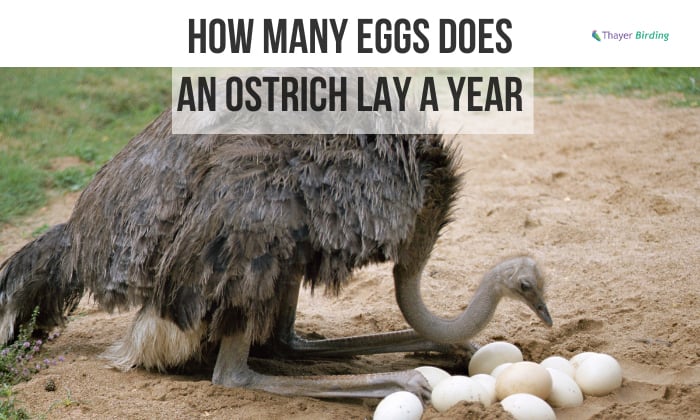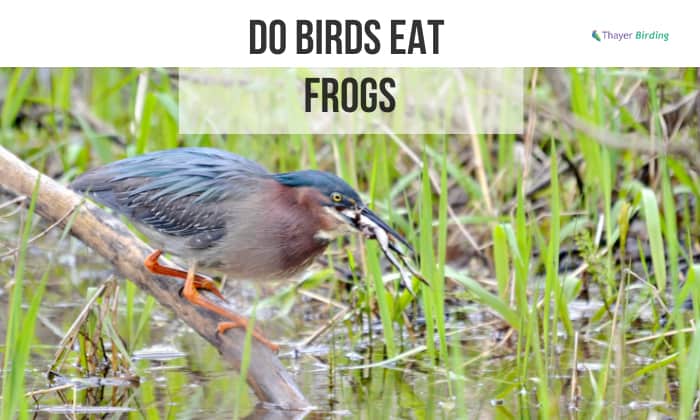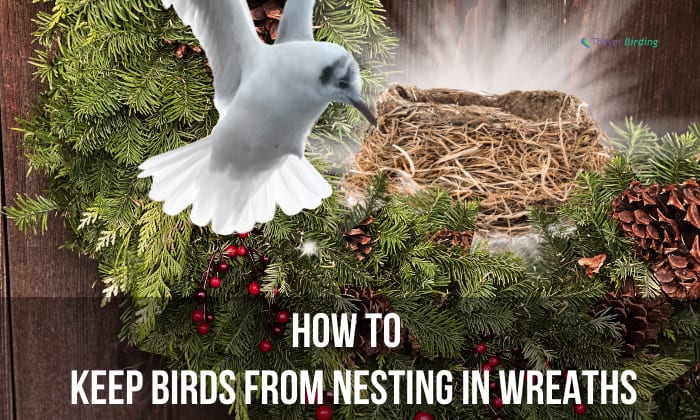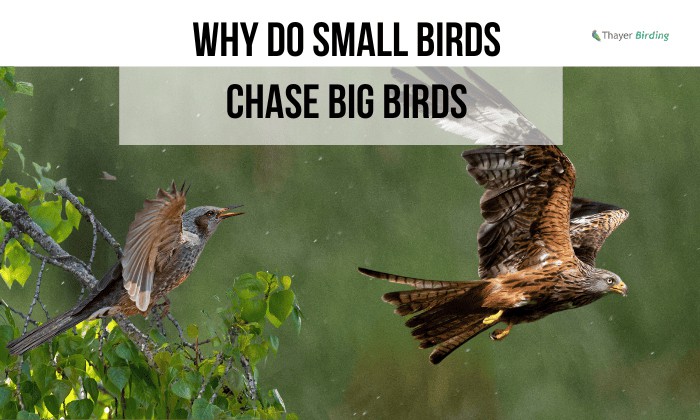Many avian enthusiasts wonder when to stop feeding birds for winter and allow them to migrate. However, winter is perhaps the most crucial time to keep your feeders in place and filled with seeds.
Today, we’ll learn more about feeding birds during winter. We’ll also share tips on helping our feathered friends thrive and survive throughout the colder season. Plus, we’ll introduce you to some fascinating year-round bird species.
Table of Contents
Feeding Birds for Winter
Winter is the best time to feed birds and a wonderful chance to interact with wildlife in your yard.
Feeders not only help avians gain energy to keep warm, but they also give you a chance to observe fascinating bird habits and take photos.
There’s no need to feed birds year-round, since they have access to plenty of natural food sources during the spring and early autumn.
What happens as winter draws near, however, is that avians need more food and body fat to survive.
Be aware that there is a need to ensure the welfare of the birds you feed and to follow ethical practices. Treat the meals you provide as an addition rather than a necessity. Birds can live off of themselves without your help, but overreliance on human-supplied food may impact this ability.
So, when should you stop feeding birds for winter? When there’s bear or predator activity where you live, stop putting feeders out. Otherwise, have avian food ready for cold weather, especially during snow storms.
Year-Round Birds Examples
Year-round birds, also known as resident birds or non-migratory birds, are avian species that do not undertake long-distance migrations and remain in their breeding or home territories throughout the entire year, including the winter months.
Here Are a Few Examples of Year-round Birds:
- Canton Towhee
- Canyon Wren
- Common Raven
- Downy Woodpecker
- Flammulated Owl
- Hairy Woodpecker
- Mountain Bluebird
- Pinon Jay
- Ruby-crowned Kinglet
- Steller’s Jay
- Western Bluebird
- Winter Wren
Tips for Making Sure Birds Have Enough Food to Survive
Understanding the technique of bird feeding is important if your garden or outdoor sanctuary serves as a magnet for beautiful bird species.
Our feathery friends become more reliant on winter bird feeders as the temperatures decrease, since fewer natural food sources are available to them.
Winter bird feeding may appear simple, but there are important details to take into account. Here are some practical tips:
1. Before You Put Out Finch Feeders, Know First the Best Winter Bird Feed, as Providing Any Delicious Morsel is Not Sufficient
What to feed the birds for winter:
- Black sunflower seeds
- Cracked corn
- Fruits (like chopped-up pieces of apples and pears)
- Mealworms
- Mixed seeds
- Nuts, lard, and suet – note that you should stop feeding birds suet once the weather gets warm. They easily get spoiled and may even leave a foul odor on bird plumage.
- Peanut butter – Spread it on a pinecone or put in special peanut butter feeders. Make sure it’s unsalted, though, as salt can be dangerous to birds.
What you should never feed birds for winter:
- Bread
- Chocolate
- Meat
- Milk
- Out-of-date or spoiled bird food – Fresh bird food that hasn’t expired should always be used.
- Household/Table food – These may disturb the bird’s digestive system, resulting in illness, diarrhea, and dehydration.
2. Practice Safe Feeding
Place bird feeders far from windows and busy areas. To lessen the chance of bird collisions, try to keep them no closer than twenty-three feet from windows. Hang them on tree branches, away from wind chimes or other areas with loud noise.
3. Cover the Feeder
Surround your feeders with native trees and shrubs. Due to the cover provided, birds are protected from predators. When they feel threatened, vegetation also provides a simple escape path.
4. Squirrel-Proof Your Feeder
Squirrels are more ravenous in winter, so use squirrel-proof feeders to stop them from consuming all the bird food.
5. Provide a Birdbath or Water Source
By doing this, you can encourage birds to see your yard as a viable habitat where they can find food and water to survive. Clean the bath frequently and use a heated one so that the water doesn’t freeze.
6. Take Bird Feeders Down at the Start of Spring
By April 1 (or the start of spring), stop feeding birds in any way. Throw away any spilled bird seeds and spoiled food bits.
Conclusion
In conclusion, continuing to feed our feathery companions over winter is more than a gesture of goodwill. It serves as a crucial lifeline when their natural food supplies are scarce.
So, when to stop feeding birds for winter? You don’t stop feeding birds during winter. Instead, you may help local bird populations thrive and appreciate their beauty during the colder months. Follow these recommendations and keep a regular supply of food out for them.

George and I became friends after a birdwatching trip with our new group. And we have been enjoying every adventure together. When he told me the idea of establishing a site that shares our experiences and fun, I immediately agreed. After trials and errors, here we have Thayerbirding.


